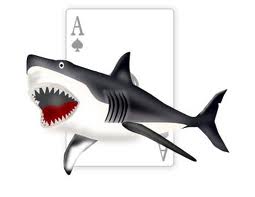 Commonsense tells us that going after poker players worse than you will yield profits over the long run. After all, these players suck and you want to get their money before anybody else does. However, there’s a different school of thought on the subject that you might not know and it involves attacking good players.
Commonsense tells us that going after poker players worse than you will yield profits over the long run. After all, these players suck and you want to get their money before anybody else does. However, there’s a different school of thought on the subject that you might not know and it involves attacking good players.
The other school of thought on attacking bad players is that they are going to bleed out money no matter if you go after them or not. And even if you’re not the one on the prowl, some of this money is going to trickle into your pockets. So why attack someone who’s going to be giving their money to you anyways?
Instead of constantly picking on the fish, you could try directly attacking a good player. Before you click on the back arrow to get out of here, give me a chance to explain. Good players are good because they know how to read opponents by watching their betting patterns and picking up on other things. So if you attack them before they’ve had a chance to analyze you, there’s a good chance you’ll make them fold. After all, a good player is more likely to fold a decent hand than a fish because they know that they’ll make it up later; fish are often harder to push off of decent hands because they don’t think about what an opponent has.
Unfortunately, there’s no blinking cursor that points out good players so you can immediately go on the attack. However, some of the statistics provided by poker software gives you stats on players right away, which can give you a better idea. Also, you could look at chip stacks since the best players normally have a full stack – especially in No-Limit games where a full stack allows you to push your advantage.